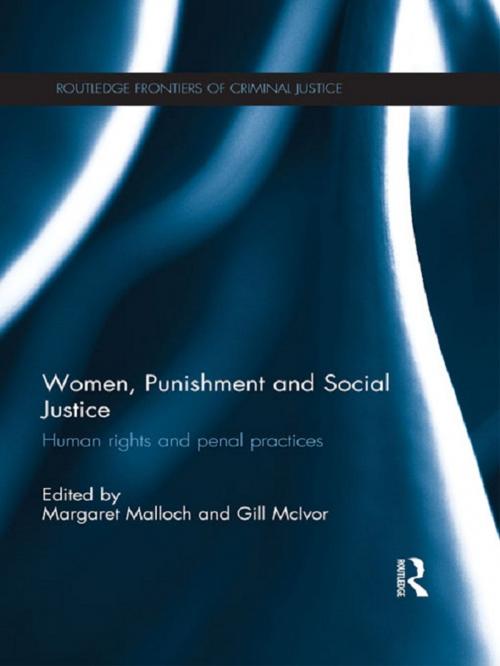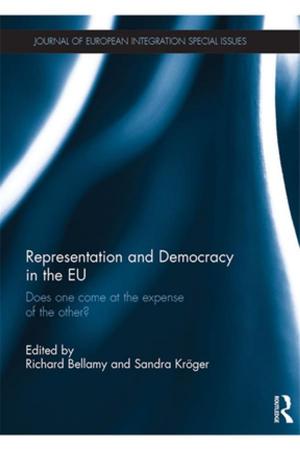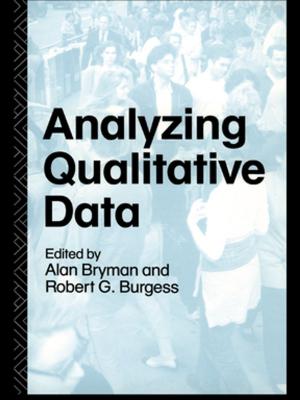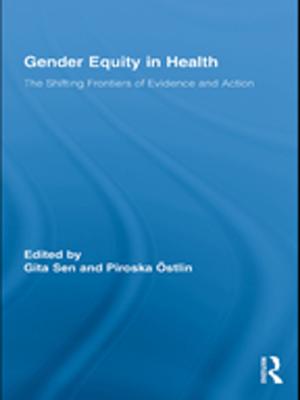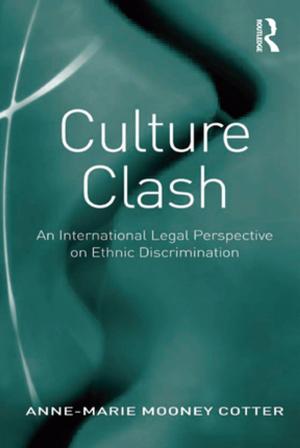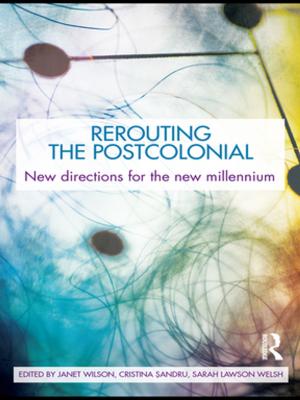Women, Punishment and Social Justice
Human Rights and Penal Practices
Nonfiction, Social & Cultural Studies, Social Science, Crimes & Criminals, Criminology| Author: | ISBN: | 9781136193705 | |
| Publisher: | Taylor and Francis | Publication: | February 15, 2013 |
| Imprint: | Routledge | Language: | English |
| Author: | |
| ISBN: | 9781136193705 |
| Publisher: | Taylor and Francis |
| Publication: | February 15, 2013 |
| Imprint: | Routledge |
| Language: | English |
The prison has often been the focus for concerns about human rights violations, and campaigns aimed at achieving social justice, for those with an interest in the criminalisation of women. To reduce the number of women imprisoned, a range of policy initiatives have been developed to increase the use of community-based responses to women in conflict with the law. These initiatives have tended to operate alongside reforms to the prison estate and are often defined as ‘community punishment’, ‘community sanctions’ and ‘alternatives to imprisonment’. This book challenges the contention that improved regimes and provisions within the criminal justice system are capable of addressing human rights concerns and the needs of the criminalised woman.
This book aims to provide a critical analysis of approaches and experiences of penal sanctions, human rights and social justice as enacted in different jurisdictions within and beyond the UK. Drawing on international knowledge and expertise, the contributors to this book challenge the efficacy of gender-responsive interventions by examining issues affecting women in the criminal justice system such as mental health, age, and ethnicity. Crucially, the book will engage with the paradox of implementing rights within a largely punishment-orientated system.
This book will be of interest to those taking undergraduate and post-graduate courses that examine punishment, gender and justice, and which lend themselves to an international / comparative aspect such as criminal justice/criminology, (international) criminal justice courses; sociology as well as professional training for practitioners (criminal justice, social work, health) who work with women in the criminal justice system.
The prison has often been the focus for concerns about human rights violations, and campaigns aimed at achieving social justice, for those with an interest in the criminalisation of women. To reduce the number of women imprisoned, a range of policy initiatives have been developed to increase the use of community-based responses to women in conflict with the law. These initiatives have tended to operate alongside reforms to the prison estate and are often defined as ‘community punishment’, ‘community sanctions’ and ‘alternatives to imprisonment’. This book challenges the contention that improved regimes and provisions within the criminal justice system are capable of addressing human rights concerns and the needs of the criminalised woman.
This book aims to provide a critical analysis of approaches and experiences of penal sanctions, human rights and social justice as enacted in different jurisdictions within and beyond the UK. Drawing on international knowledge and expertise, the contributors to this book challenge the efficacy of gender-responsive interventions by examining issues affecting women in the criminal justice system such as mental health, age, and ethnicity. Crucially, the book will engage with the paradox of implementing rights within a largely punishment-orientated system.
This book will be of interest to those taking undergraduate and post-graduate courses that examine punishment, gender and justice, and which lend themselves to an international / comparative aspect such as criminal justice/criminology, (international) criminal justice courses; sociology as well as professional training for practitioners (criminal justice, social work, health) who work with women in the criminal justice system.
